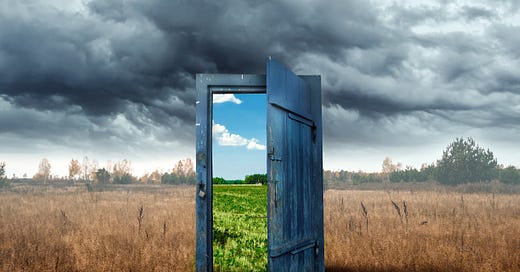This all begins with people. I’ve been wondering lately if many of us have given up on the idea of human agency.
Human agency reflects our individual power, expressed through thoughts and actions. This freedom enables us to make choices and act independently based on our values and beliefs, thereby shaping our reality and, to some extent, imposing our perspectives on and influencing others. However, agency isn’t created in a vacuum. It is informed, in part, by elements of the social structure that has enshrouded us over a lifetime. Our agency is molded by the culture and subcultures, systems, and institutions in which we were raised and our own lived experiences within these structures.
The social structures we inhabit collectively form a framework (or system) governing how we live and interact with one another. Within this overarching system, smaller subsystems define specific and acceptable ways of interaction—a standard operating procedure – influencing social dynamics across cultures, subcultures, civil society, politics, and the economy, among other aspects. We live in a world where systems within systems have been designed by our predecessors to address issues that existed during their time, though these issues may no longer be relevant or manifest in the same way today.
The strength or weakness of human agency is pivotal in predicting social, political, economic, and cultural outcomes. If we deem the status quo unchangeable, it will remain so. This mindset appears to prevail today. Generation after generation, we have typically adopted many historical systems and outcomes with little application of individual critical thought because our social structures suggest that we must do so. Why? Change is hard. Or is it? I want to believe the "hard" part of change lies in its complexity, which makes it daunting to explore and understand, causing us to acquiesce. Yet, I recognize the darker motive that frequently emerges: resistance to change is deeply rooted in fear of losing the benefits that some of us might experience if our current systems and structures were to change.
Agency underpins our humanity. Observing the current state of our world, one might argue that we have disconnected from our humanity, especially in America.
We are taught to compete and strive for individual success, often at the expense of others. The systems and structures we have created and live within benefit a dwindling number of people. We are growing increasingly detached from those unlike us, causing our empathy and connection to a shared humanity to erode. This detachment divides our communities and jeopardizes our environment. We've turned this inward focus on ourselves, and a lack of concern for the greater humanity into an unnecessary "culture war," where “people like us” adhere to certain norms, and these norms often involve prioritizing our individual place within the social structure over anything that doesn't align with our perception of that structure. If you're not with us, then you're against us. This attitude frequently prevails only because the systems and cultures that foster these views become self-perpetuating when human agency weakens.
This brings me back to the social structure.
The idea of human agency creates a dialectic relationship with the social structure. From a philosophical perspective, this means an ongoing dialogue between our agency and our culture and systems. Because the social structure is a collective creation of the individual agency, it influences each of us. In turn, we create and maintain the social structure by adhering to it. What we have is what we have created by not exercising our agency.
More simply put, things are as they are because it is how we have individually, and therefore collectively, chosen to allow them to be.
If we desire to rekindle our humanity – frankly, some days I wonder if we do – it requires each of us to closely examine how the social structures have informed our lived experiences, and then look inward and reflect on our individual values and beliefs. It’s hard work because it forces us to reexamine the truths we have formed, often based not on what we truly believe and value but on what we were told we should believe and value. It’s hard to separate the two sometimes; I know because I’ve been doing this work, too.
Choosing not to do this introspective work to determine who we are beyond the expectations of our social structures, makes it increasingly difficult to appreciate and value the unique contributions each person in the world brings to our society and shared culture. I would argue that prioritizing the well-being of our fellow humans and our planet, and then using our agency to shape equitable and compassionate social structures will bring us closer together and reflect the shared humanity I believe we’re called to create in our time on Earth.
Some are meeting this challenge; others seem less interested. Why is that? What is going on in our social structures that serve us, or limit us, in our prioritization of humanity?
What are your thoughts?





